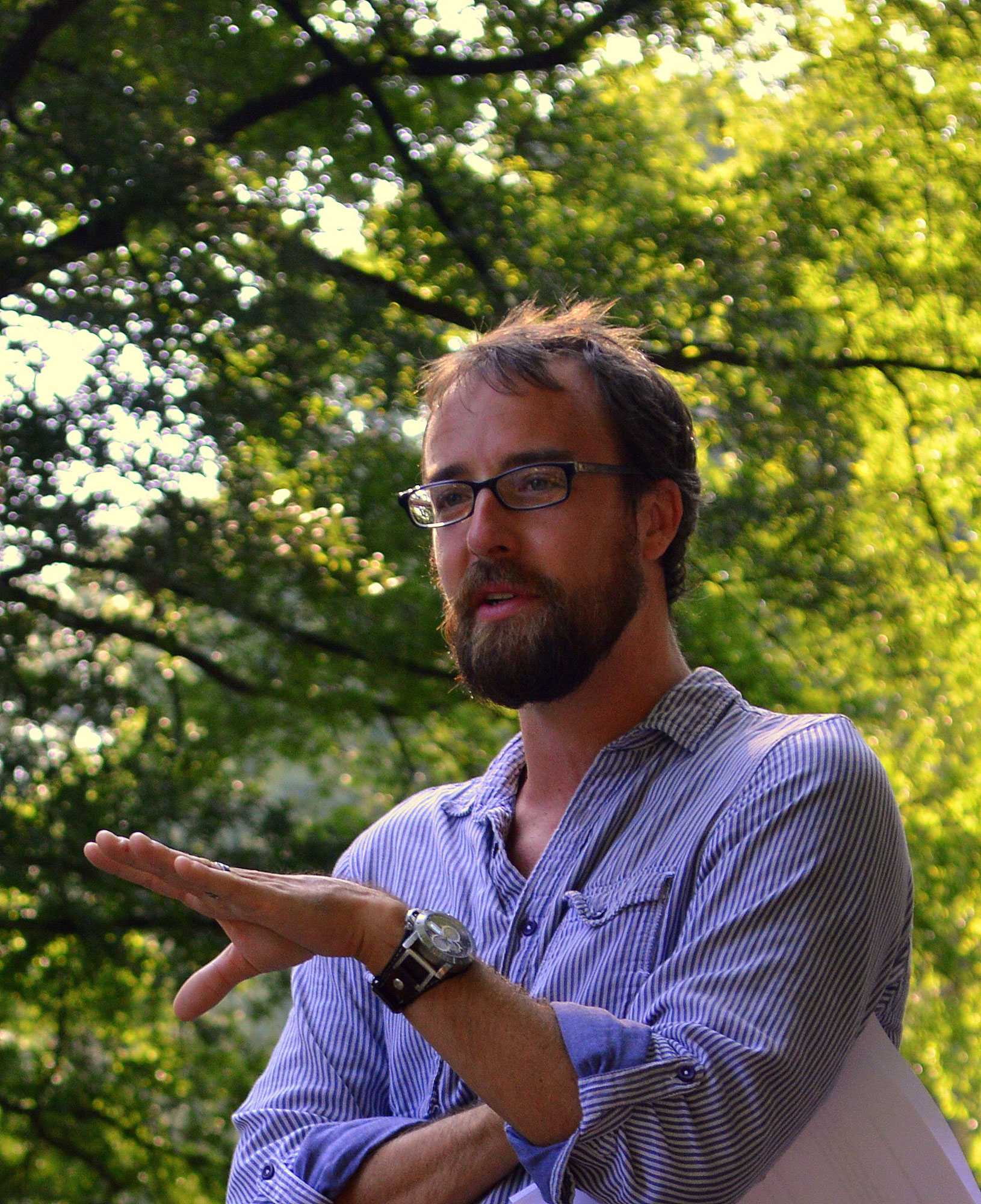On Sept. 16, the North Carolina Literary Review announced Appalachian State professor Zackary Vernon as the magazine’s first ever Alex Albright Creative Nonfiction Prize winner.
Vernon’s essay, “Boone Summer: Adventures of a Bad Environmentalist,” will be published in the 25th issue of the magazine in 2016. The essay talks about homesteading in the 21st century and if it’s even possible to do.
Vernon said this essay is the first chapter of his upcoming book where he will look at what people engage in locally that can have negative ramifications for the environment. It will cover southern pleasures such as fishing, hunting, eating and drinking locally, and more.
“The tension I’m trying to get at is not scholarly, it’s not theoretical,” Vernon said. “How much pleasure do we deny ourselves in order to be good environmental stewards to protect the environment for future generations of people or for animal communities?”
Vernon hopes to give a very honest approach to the personal decisions individuals make in trying to be environmentally conscious. Although scholars write about these questions constantly, Vernon wanted to avoid scholarly and theoretical writing and give people a very personal, everyday example, he said.
The North Carolina Literary Review Founding Editor Alex Albright, whom the award is named after, said Vernon’s essay stood out “because it went beyond the author’s own experiences to describe cultural, environmental and regional subjects.”
Vernon’s essay covers his move from Boston back to North Carolina. While living in Boone, Vernon hopes to interview Eustace Conway, a local reality TV star who owns a nature preserve just outside of Boone known as Turtle Island. Vernon compared Conway’s thousands of acres with his own two acres.
“Eustace Conway is an anomaly in that he owns a thousand acres, so he can pretend it’s still the 19th century because he has the space to do it,” Vernon said. “My very small scale of frontier is very much more indicative of what people experience today: You have a little bit of property, you have a garden that’s kind of wild, and you have to fight the snakes and the coyotes and that’s as close as we come in the 21st century to the frontier experience. It’s about comparing those two experiences, his and mine.”
Vernon said that Conway will be an excellent contrast to his own impulses.
“I think we have the same type of environmental impulse in that we are trying to be good stewards, if possible, and get outside of the industrial, agricultural system as much as possible to feed ourselves,” Vernon said.
Junior sustainable development major Savannah Wishart is proud of Vernon for discussing the issue.
“As a sustainable development major, this is a topic I’m thinking about in my job and at home,” Wishart said. “When you think about it, the question never really leaves us – we are home wherever we are.”
Story by: Molly Flinchum, Intern A&E Reporter

